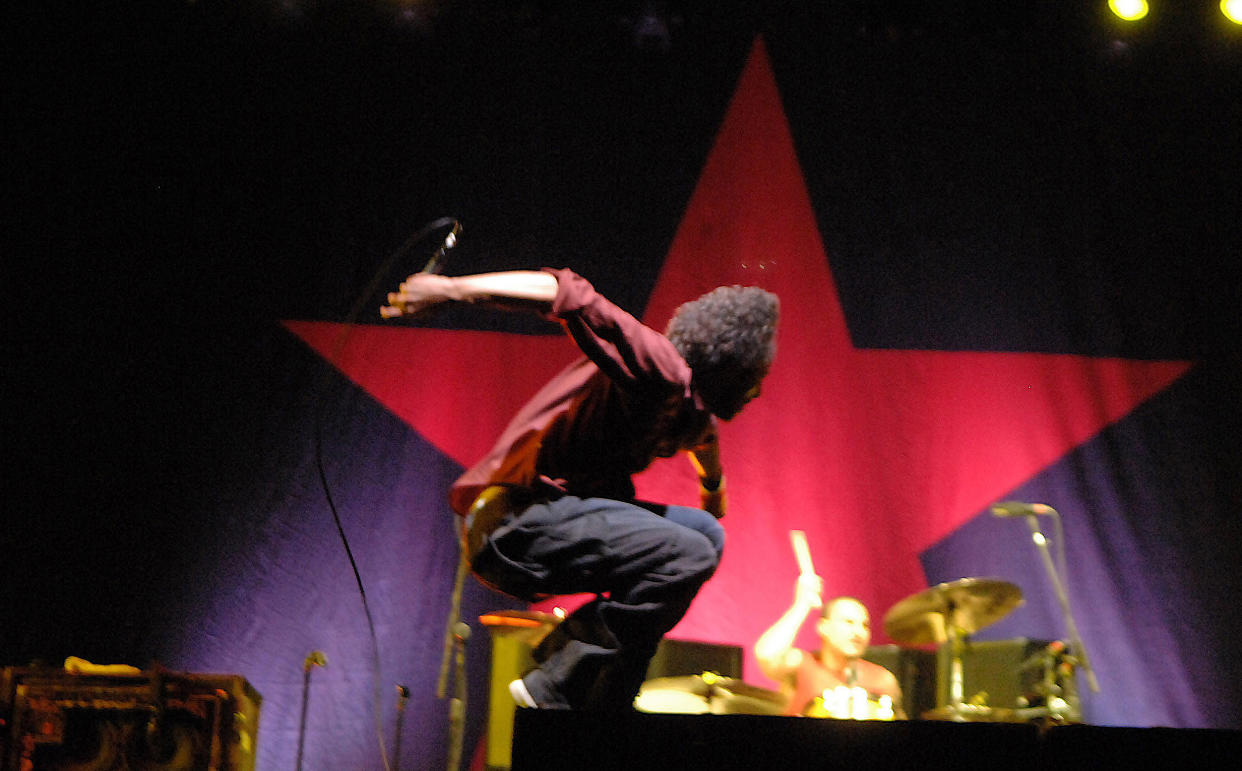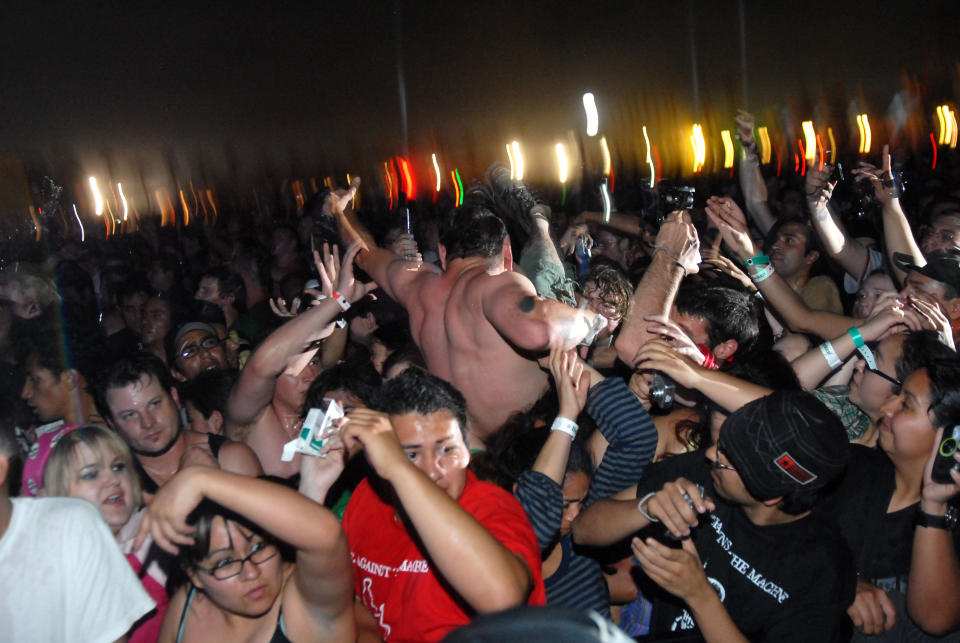Does Rage Against the Machine’s Coachella reunion signify a return to the festival’s roots?

On Friday, it was reported by Forbes, Rolling Stone, Billboard, and other major music outlets that alternative-metal protest band Rage Against the Machine, who last performed together in 2011, will reunite to headline Southern California’s Coachella Valley Music & Arts Festival next year (along with a handful of politically significant lead-up dates in U.S. border towns). The move on the part of Coachella’s organizers, Goldenvoice/AEG Presents, seems to signify a return to the festival’s roots. Not only did RATM headline the very first Coachella festival, which just celebrated its 20th anniversary, but the booking revives a dormant tradition of reunited heritage acts making rare, eagerly anticipated appearances on the Coachella stage.
A little Coachella primer here: 2004 was a watershed moment for Coachella. It was the first year that the festival actually made a profit, and much of the buzz surrounding the 2004 event had to do with a reunion set by college rock legends the Pixies. After that, reunions and/or comebacks by pioneering alternative music acts became a top draw act Coachella: Bauhaus, New Order, and Gang of Four in 2005; the Jesus and Mary Chain and Rage Against the Machine themselves in 2007; Love and Rockets and the Verve in 2008; My Bloody Valentine in 2009; Faith No More and Pavement in 2010; Suede and Duran Duran in 2011; and Refused, who actually got back together only after Coachella promoters approached them, in 2012.

Over the years, however, the original Coachella audience aged out of the festival demographic, and so the lineups shifted to younger, newer acts playing mostly pop, hip-hop, and EDM. Ironically, it could be argued that this evolution began back in 2007 — the year of RATM’s first Coachella reunion — when the festival expanded from two to three days and became more of a time commitment (thus turning off potential attendees who might have jobs, children, or other adult responsibilities to tend to on their Friday afternoons). But the change was truly felt in 2010, when the festival ceased selling single-day tickets, thus forcing concertgoers to purchase full three-day passes. That new policy effectively alienated fans of any individual performer, and instead favored spring-breaker types who viewed Coachella as more of a lifestyle event/vacation destination — as evidenced by the fact that Coachella tickets started to sell out every year before the lineup was even officially announced.
This cultural and demographic shift was extremely noticeable in 2013, when a Friday night double-header of reunited Britpop legends the Stone Roses and Blur failed to attract a sizable crowd to the main stage, and especially in 2014, when the Replacements (performing their first California show since 1991) played to a practically empty field, a much-hyped reunion set by Outkast fell flat, and the crowds for acts like Bryan Ferry, Superchunk, and even mid-career alt-rockers like Muse and Queens of the Stone Age were embarrassingly thin. Meanwhile, the newly expanded dance tent was always packed beyond capacity.
At first, AEG doubled down on veteran artists by booking AC/DC and Steely Dan in 2015 and Guns N’ Roses in 2016 — but even that was a move away from alternative rock, per se. Recently, the festival has leaned heavily towards global pop superstars: 2017 headliner Lady Gaga, Beyoncé’s history-making Saturday performance in 2018 (a year that actually boasted no rock headliners, with the Weeknd playing Friday and Eminem on Sunday), and this year’s Childish Gambino and Ariana Grande.
But general nostalgia for the ‘90s and early/mid-2000s — arguably the last era in which alternative rock was a major driving force in youth culture — is now reaching a fever pitch among millennial and Gen Z concertgoers, which is clear from the Twitter excitement surrounding the upcoming Rage Against the Machine reunion (along with another, non-Coachella reunion show announced this week, by emo heroes My Chemical Romance). While we will have to wait a couple months see how the rest of the 2020 Coachella lineup pans out, this Rage news does seem to indicate that raging Coachella-goers are ready to party like it’s 1999.
Read more from Yahoo Entertainment:
Coachella's most memorable moments, from Tupac's hologram to Prince's 'Creep'
All she wants to do is dance: Is rock losing the war to EDM at Coachella?
'Billiechella': Eilish stuns with career-making Coachella Saturday set
Follow Lyndsey on Facebook, Twitter, Instagram, Tumblr, Spotify.
Want daily pop culture news delivered to your inbox? Sign up here for Yahoo Entertainment & Lifestyle’s newsletter.


